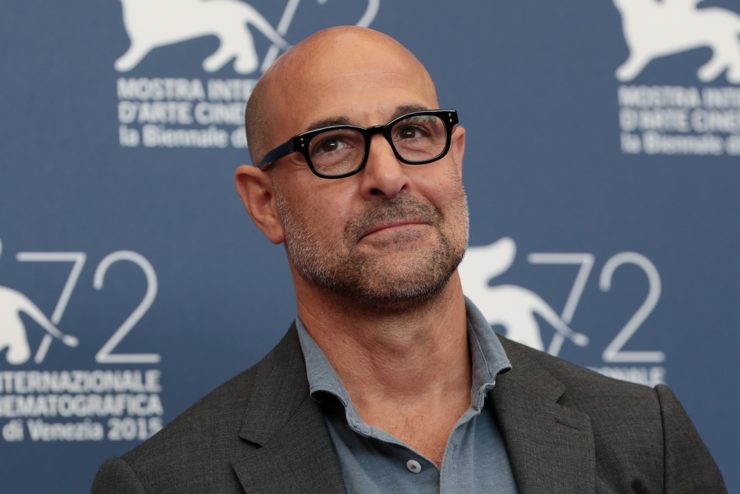Featured
5 movies about financial markets that are actually accurate
The financial market movies in our list provide both entertainment and factual accuracy.

Financial markets are dynamic, complex and exciting, and it didn’t take Hollywood too long to seize the opportunity to visually document this bold industry.
There are plenty of movies based on the financial markets— and for a good reason! When you add a great script with a Hollywood twist, you end up with blockbusters like “The Big Short” and the sensational “Wolf of Wall Street.”
While the entertainment value of these films is undeniable, they don’t provide an accurate representation of the real financial world. However, here is a list that combines the best of both worlds: phenomenal entertainment, and factual accuracy!
1. Inside Job
The movie directed by Charles Ferguson and starring Matt Damon received the 2010 Academy Award for Best Documentary Feature.
Synopsis: Inside Job provides a comprehensive analysis of the 2008 global financial crisis, estimated at over $20 trillion. The economic disaster left millions without jobs and homes in the worst recession since the Great Depression. As a result, global markets nearly collapsed. Through research and extensive interviews with key financial insiders, politicians, journalists, and academics, the film traces the rise of a rogue industry which has corrupted politics, regulation, and academia.
Why we recommend it: The accuracy of the action and the insights about the financial crisis of 2008 make it a “must see.” Some market pundits noted that it provides the type of information that will make masses learn from past mistakes and prevent them. Moreover, the overview is global, with information from people in different locations: the United States, Iceland, England, France, Singapore, and China.
2. The Ascent of Money
Directed by Adrian Pennick, the movie received the 2009 International Emmy Award.
Synopsis: The documentary adapted from a 2008 book by the Harvard professor Niall Ferguson. The author features in the production which airs on TV in the UK and US. The storyline follows the interconnected history of money, credit, and banking.
Why we recommend it: History and context often offer a documented perspective and a better understanding of the financial world.
3. Life and Debt
The movie was awarded a special mention at the Los Angeles IFP/West Film Festival in 2001. This was followed by an audience award in Prague at the One World Film Festival in 2002.
Synopsis: The documentary is an unapologetic depiction of the “new world order.” It highlights the point of view of Jamaican workers, farmers, government and policy officials who see the reality of globalization from the ground up.
Why we recommend it: The movie underlines the economic situation of a small country like Jamaica and explains how indebtedness makes an existing lousy situation even worse. It’s food for thought concerning the debate on bailing out entire countries through debt lending.

4. Margin Call
The movie has a 5-star cast including Stanley Tucci, Kevin Spacey and Demi Moore. It received the 2012 AACTA International Award.
Synopsis: The story revolves around a day at a large investment bank at the beginning of the financial crisis. A junior analyst discovers that the banks’ holdings in mortgage-backed securities will soon bankrupt the bank. As a result, all company’s traders end up selling worthless investments to clients on purpose.
Why we recommend it: The storyline is similar to the Goldman Sachs controversy after 2007. Besides, history can teach consumers valuable lessons.
5. Banking On Bitcoin
This movie takes on the new trend — cryptocurrency and Bitcoin.
Synopsis: The Netflix production features interviews with enthusiasts and experts covering Bitcoin’s roots, its future, and the technology behind it.
Why we recommend it: Bitcoin is considered one of the most disruptive inventions since the dot-com bubble. It shows how technology fundamentally shapes our lives and underlines this new ideological battle between utopia and capitalism. The result? A new ideological struggle between fringe utopists and mainstream capitalism.
(Featured image by Denis Makarenko via Shutterstock)
—
DISCLAIMER: This article expresses my own ideas and opinions. Any information I have shared are from sources that I believe to be reliable and accurate. I did not receive any financial compensation for writing this post, nor do I own any shares in any company I’ve mentioned. I encourage any reader to do their own diligent research first before making any investment decisions.

-

 Crowdfunding2 weeks ago
Crowdfunding2 weeks agoColombia Approves Terrenta’s Crowdfunding Platform for Real Estate Financing
-

 Africa1 week ago
Africa1 week agoCôte d’Ivoire Unveils Ambitious Plan to Triple Oil Output and Double Gas Production by 2030
-

 Biotech2 weeks ago
Biotech2 weeks agoGalicia Becomes First in Spain to Approve Gene Therapy for Hemophilia B
-

 Business5 days ago
Business5 days agoThe TopRanked.io Weekly Digest: What’s Hot in Affiliate Marketing [NordVPN Affiliate Program Review]

























